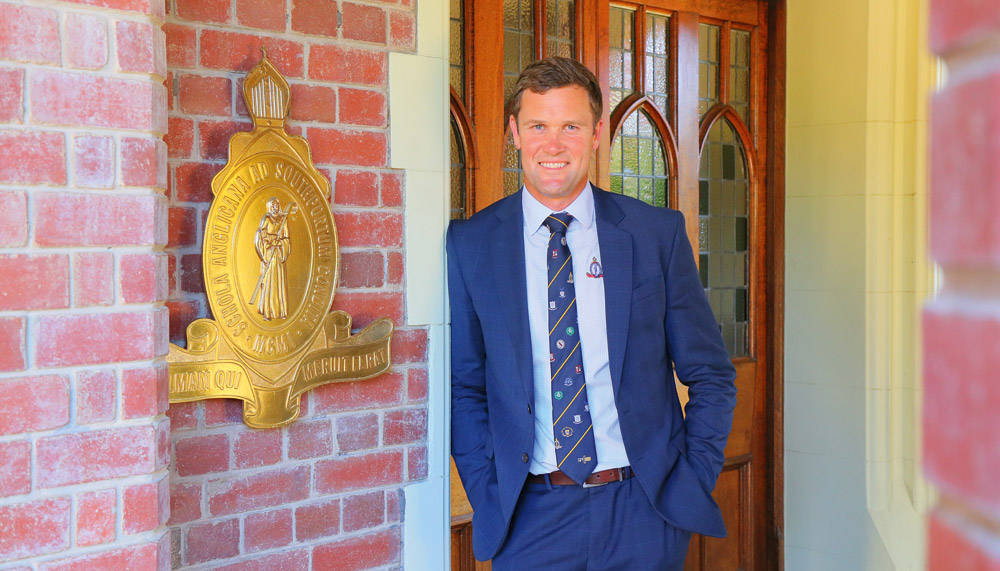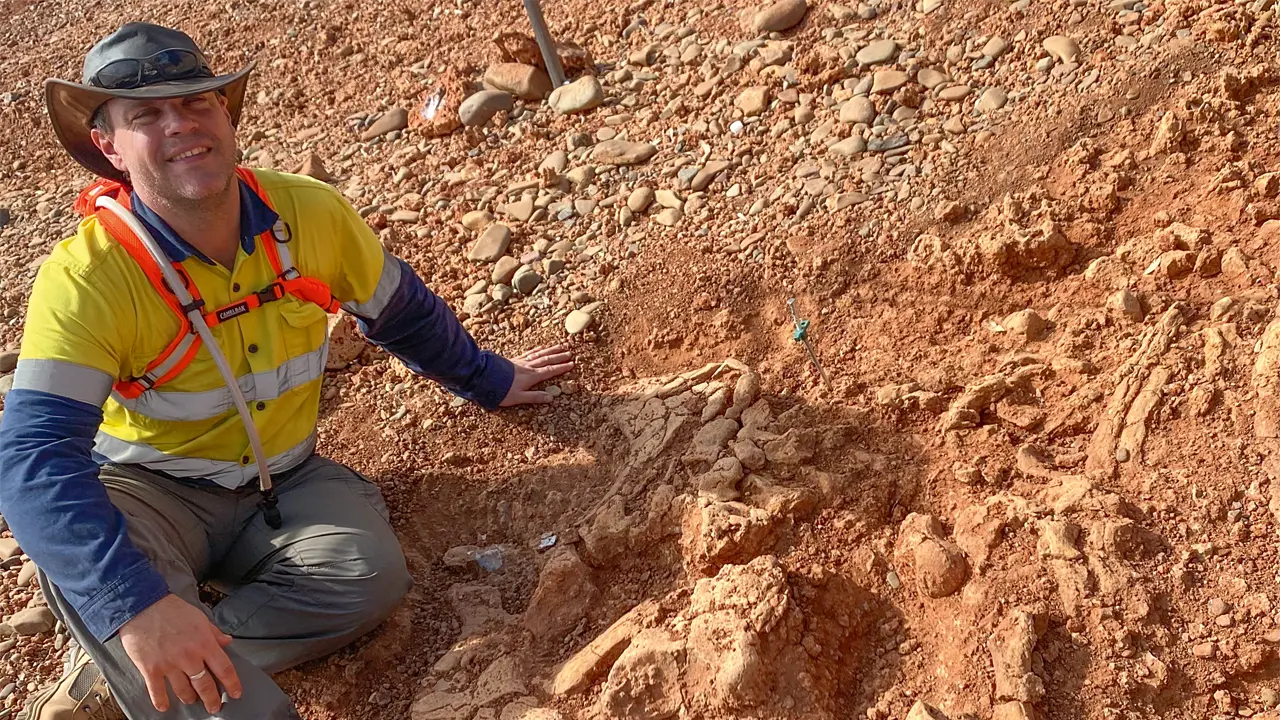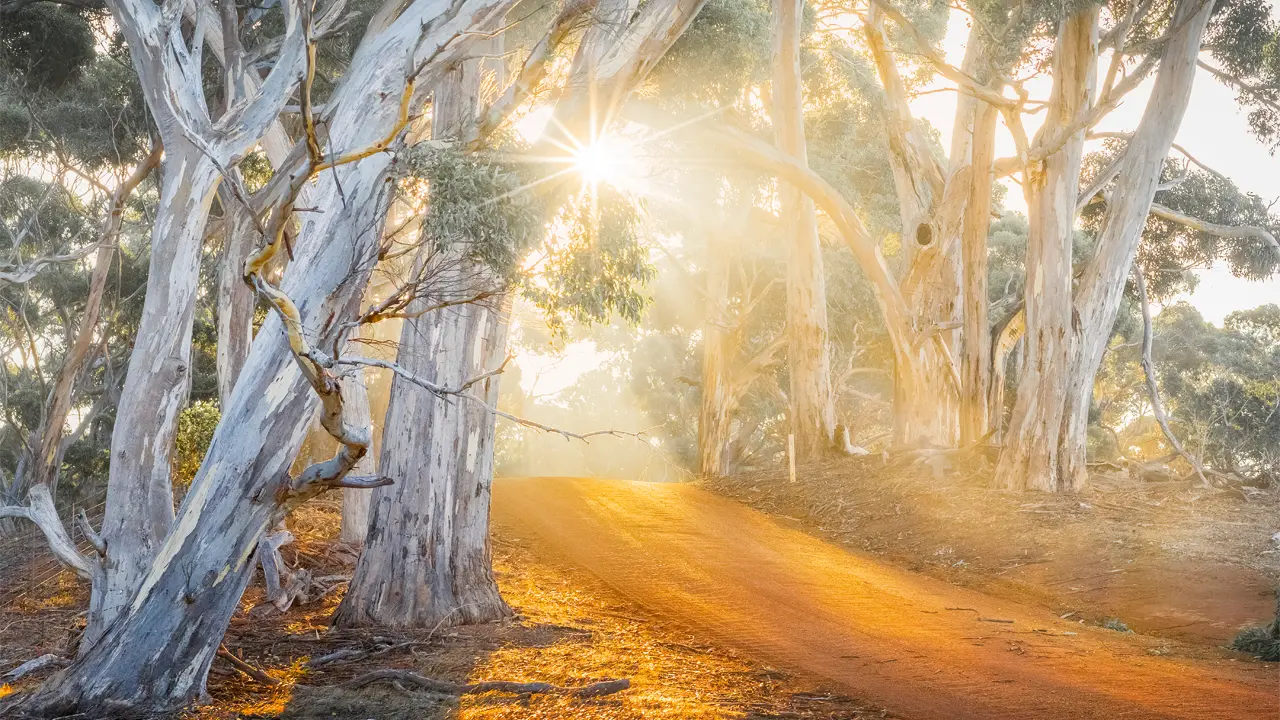New headmaster of The Southport School Andrew Hawkins reflects on the changes since he was a student there a quarter of a century ago.
Story Ken Eastwood
Andrew Hawkins from Emerald, Qld, is the first old boy to become headmaster of 1650 students at The Southport School (TSS) on the Gold Coast. Andrew has worked for 17 years at the 120-year-old school and took over from the retiring Greg Wain at the beginning of this year.
Andrew was vice-captain of TSS in 1995, serving alongside former Wallaby captain Nathan Sharpe, who was school captain, and remembers fondly his time as a boarder. “I absolutely loved it,” he says. “I know not everyone enjoyed boarding school back in the ’90s, but I loved it. Just the doors that opened for me. I played cricket, rugby, and was straight into the rowing team. You had no choice back then – if you were over six feet [180cm] it was straight down to the boatshed and you’d do what they said.”
Andrew identifies three major changes in the 25 years since he was a student at TSS: teaching pedagogy, the structure and tone of boarding school, and the ongoing presentation and understanding of masculinity.
“Teaching’s changed a lot, but you still sit down for two hours with pen and paper and handwrite an exam, so that part of education has never changed. Fundamentally it’s the same,” he says. “But, for example if you look at the robotics classroom, it’s about twice the size of a traditional classroom and in the centre of the room is like two cricket nets where they fly drones. It’s just out of this world.”
He likens teaching something like robotics to making a delicious spaghetti bolognaise and hiding vegetables in it. “They’re doing maths, science and English, but they don’t realise it – it’s just on a different level.”
Boarding has undergone several changes in the past few decades. In the early 2000s, a growth in international students and Monday–Friday boarders from northern NSW saw the traditional cohort of country Queensland boarders drop down to only about 20% of the total. The school then decided to go back to its roots. Now, out of 320 boarders, 280 are from rural and remote country areas of Queensland, such as Goondiwindi, Roma, St George and Longreach.
Andrew’s elder brother went to the school when all 240 boarders were housed in the same building – 80 on each floor in huge dorms, with senior students running the houses. The system had begun to change when Andrew was a student and now there are five separate boarding houses, with comfy leather couches and kitchenettes. “My philosophy is if you make it nice, the boys will treat it nice.”
He says that the old days of older students running the houses was often “poisonous”, leading to abuse, bullying, a rough-and-tumble culture and a poor understanding of “what makes a man”. “Healthy masculinity is just so important, because we’re still not getting it right,” he says. “I tell the boys all the time there are so many ways to show your manhood and courage, rather than picking on some kid. Hopefully it’s now a safer place for all boys, whether they’re homesick, high risk or under the pump because they’re rowing in the first eight and trying to study hard and be an adolescent at the same time. Staff are so much better trained now.”
Andrew says that it’s been a very busy start to the year, but he’s looking forward to the challenges ahead. “I chose to come back and teach here because people invested in me. Now it’s my job to plant the seed so people can sit in that shade in 20–30 years’ time.”
This story excerpt is from Issue #137
Outback Magazine: June/July 2021










